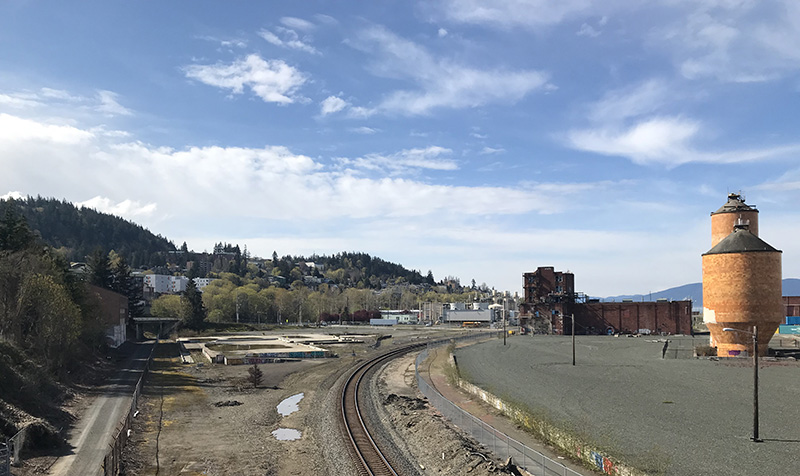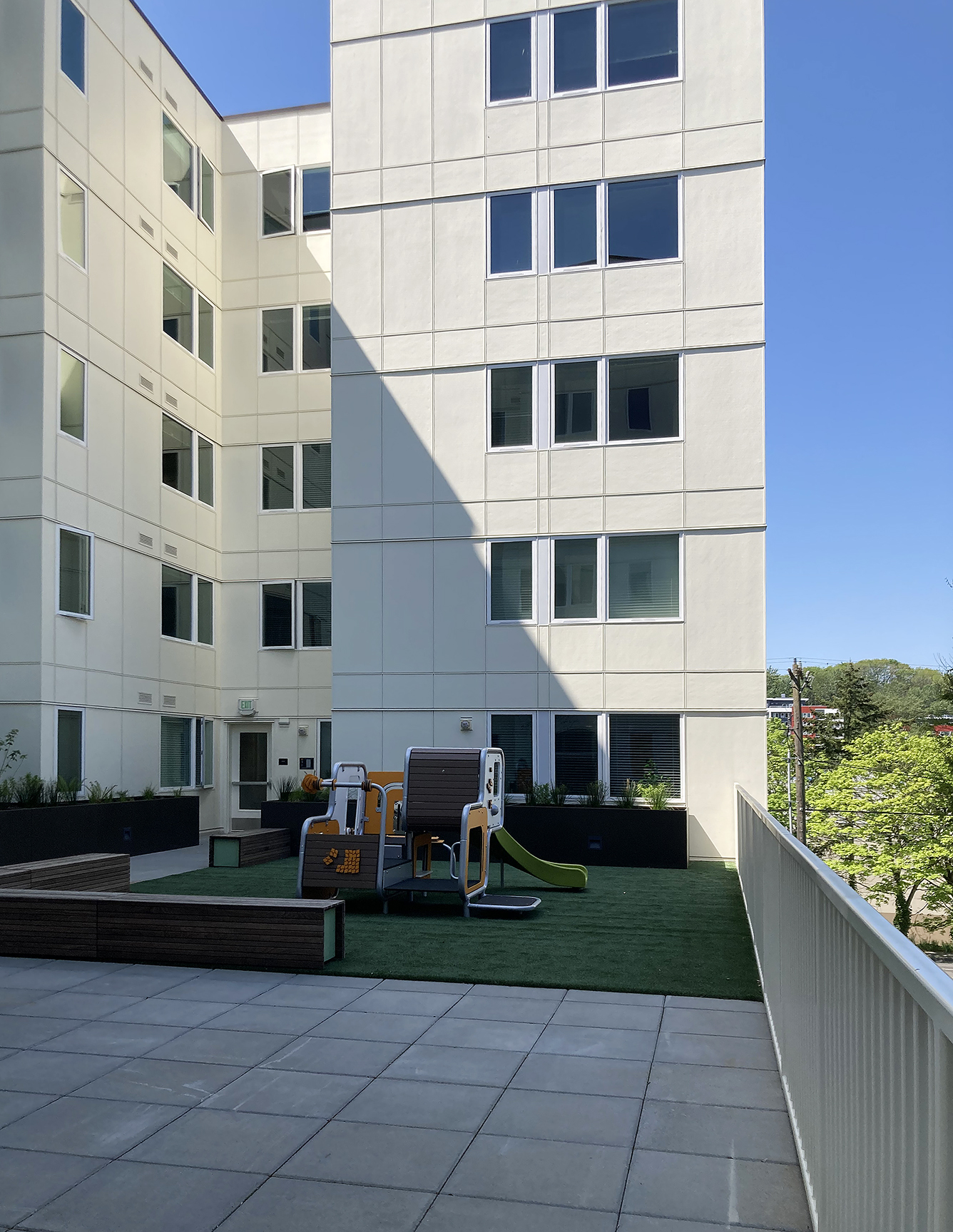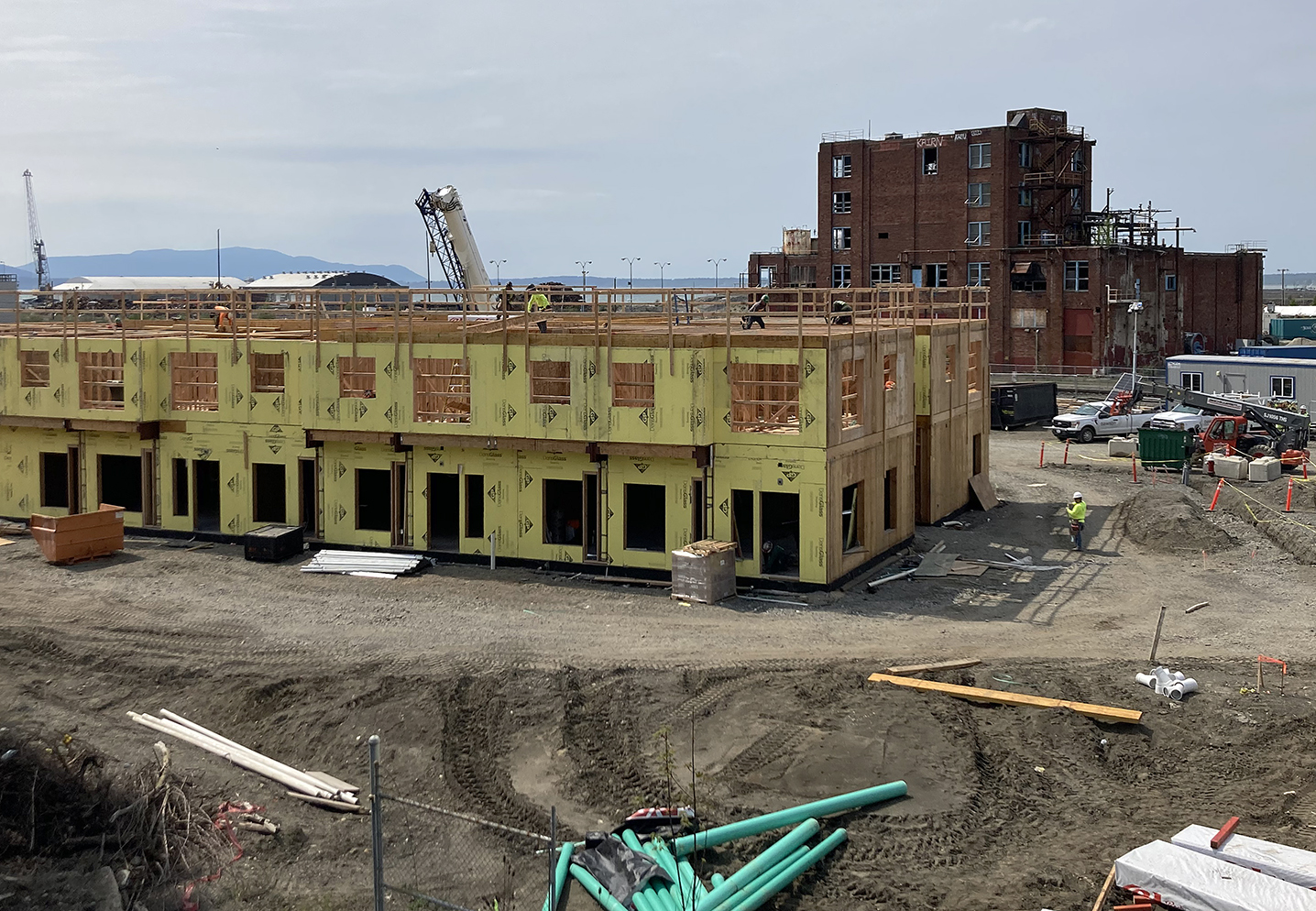Affordable housing-related cleanup
Affordable housing cleanup update: 2023–25 biennium
Removing toxic threats opens the door to put properties back into use. We are making it easier to redevelop once-contaminated properties into housing that communities can afford. These investments help reduce the gentrification and displacement of low income communities that often follows site cleanup and redevelopment.
In addition to the usual risks of redevelopment, cleaning up contaminated sites can be a complex process with considerable risk. The cost and time associated with cleaning up a site is often poorly understood; as a result, many sites are left vacant or underused for years, even decades. Supporting cleanups for affordable housing helps make sure the cleanup gets done, protecting the community’s health and the environment.
Why is Ecology supporting affordable housing developments?
Washington is in dire need of affordable housing across the state. Contamination, or even the suspicion of contamination, drives up the costs of housing development. The high cost leaves little incentive for developers to build affordable housing.
On our blog: The Port of Bellingham, Ecology, and Mercy Housing Northwest have agreed to work together on a section of the Georgia Pacific West site in Bellingham.
Affordable Housing Cleanup Grant Program
We developed a competitive grant program to expedite environmental cleanups on sites intended for affordable housing. This program provides grants for planning and cleanup of contaminated sites. The grants will support communities by:
- Cleaning up environmental contamination for residential use.
- Providing meaningful community engagement that informs and shapes decisions throughout the cleanup process.
- Reducing cleanup costs to develop affordable housing.
- Targeting areas in high need of affordable housing in proximity to transit, goods, and services.
- Reducing displacement.
- Integrating longer-term goals of shared economic and community asset building across a diverse population.
If you would like assistance on a potential project, please contact Laurie Dahmen.
Affordable housing cleanup grants
Affordable housing cleanup grants fund cleanup after a site is under a formal cleanup agreement with Ecology. These grants include work conducted under order or decree at the contaminated site(s) including planning, environmental studies, and cleanup design and construction costs.
Applications for this grant type are solicited for in January or February of even-numbered years in Ecology’s two-year funding cycle. Applications are screened for eligibility, scored, and ranked. The ranked project list is then included as part of Ecology’s capital budget request to the Governor in September of the same year. The number of projects included is dependent on funding availability. Projects receiving grant funding will be announced in May or June the following year. An order or decree for the cleanup is required before a grant can be written.
Affordable housing planning grants
Affordable housing planning grants are for assessing contamination at a site and figuring out if an affordable housing project is viable. They also fund community outreach.
We accept applications for this grant type in summer of odd-numbered years, depending on funding availability. We screen, score, and rank applications. We send funding notifications of within two to three months of the application window closing. Grant writing can begin for funded projects immediately after the grant award.
Current projects from the pilot program
Related links
Contact information
Laurie Dahmen
Affordable Housing Lead
Laurie.Dahmen@ecy.wa.gov
360-628-7499





